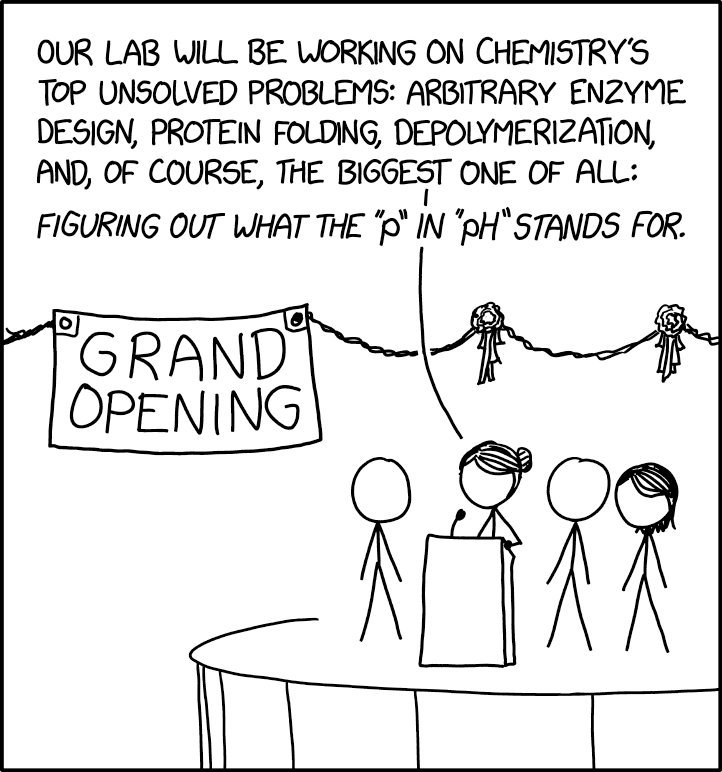this post was submitted on 09 Jun 2024
151 points (99.3% liked)
xkcd
8766 readers
139 users here now
A community for a webcomic of romance, sarcasm, math, and language.
founded 1 year ago
MODERATORS
you are viewing a single comment's thread
view the rest of the comments
view the rest of the comments

They told me at school that ‘p’ meant ‘negative log’. So ‘pH’ means ‘the negative log of the concentration of Hydrogen ions in moles/litre’.
pH 1 is 1 x 10^-1^ (strong acid)
pH 7 is 1 x 10^-7^ (neutral)
pH 1 is 1 x 10^-14^ (alkaline)
(Chemistry was a long time ago, though)
The xkcd breaks it down for us, basically we don't know because the person who coined the term never specified what it was. It's either: puissance, potens, or potenz. Which means potency in French, Dutch and German, the three languages the scientists published in.
Can the term potency also be used to refer to the exponent in English? Because that is what is meant by the terms in the other languages and I haven't come across that usage of the word potency in English
I think that's accurate, the exponent is what it's referring to, but the pedantic types are worried about what the p literally means.